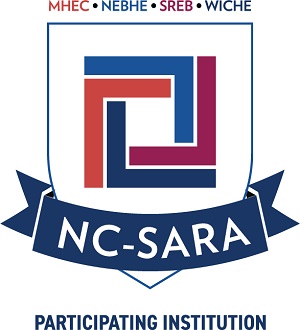Quick Links
- Home
-
About BMCC
-
Admissions
-
Financial Aid
- Net Price Calculator
- Scholarships & Grants
- Apply for FAFSA
- Financial Aid Refunds and Disbursement Schedule
- Return of Financial Aid or Title IV Funds
- Student Employment
- Forms & Links
- Understanding Tuition
- Student Billing
- Financial Aid Staff
- Higher Education Emergency Relief Fund (HEERF)
- Emergency Aid Program
-
Financial Aid
- Academics
-
Student Services
-
Contact Us

Address:
12214 W. Lakeshore Dr
Brimley, MI 49715
(906) 248-3354
Get Directions
Welcome new students, faculty, and staff! If you're having trouble accessing your BMCC email, Moodle, Student Records, etc. you can submit a ticket at support.bmcc.edu. Please be sure to include a currently active external email address of yours (or phone number where you can be reached), like Gmail, Yahoo, Hotmail, and so on. After submitting a ticket using the form, if you're not seeing a reply in your inbox, be sure to check your spam or junk folder for a reply. You can call IT to check on your ticket status by calling (906) 248-3354, toll free: (866) 967-2622 (BMCC) and ask for the Information Technology or IT department.
Online Learning

Bay Mills Community College (BMCC) was approved on November 13, 2017, by the State of Michigan, to participate in the National Council for State Authorization Reciprocity Agreements (NC- SARA). NC-SARA is a voluntary, regional approach to state oversight of postsecondary distance education.
BMCC, as a SARA approved institution, can deliver online programs to residents in any SARA member state without seeking additional authorization from that particular state. SARA is a voluntary agreement among 49 member states, districts, and territories that establish comparable national standards for interstate offering of postsecondary distance education courses and programs. SARA is overseen by a National Council and administered by four regional education compacts. The State of Michigan is a member of the SARA-Midwestern Higher Education Compact.
State Authorization Status
BMCC can offer its online programs in all States which have joined NC- SARA.
California Authorization
California has not joined NC-SARA but BMCC can offer its online programs to California residents. BMCC is an accredited public non-profit institution without a physical presence in the state of California and is currently exempt from seeking authorization/registration in California for its online programs. However, certain in-person program requirements, such as internships and field placements, may not be available. Please contact the department that administers the program you are interested in for additional guidance.
Accreditation
BMCC is accredited by the Higher Learning Commission (HLC) as a regionally accredited institution authorized to operate as an institution of higher education and to offer distance education courses. HLC is an institutional accrediting agency recognized by the U.S. Department of Education.
Licenses
To All Potential Students: Please check the state requirements for professional licensure before you undertake your program of study.
BMCC offers programs which may lead to licensure in the state of Michigan. BMCC cannot assure that its distance education offerings will lead to licensure in other states. Students, who seek admission to BMCC’s distance education online programs, are responsible for contacting the appropriate licensing agency in their state to determine what the requirements for professional licensure are.
BMCC State Licensure-Education-Education
Complaints Information Link
BMCC SARA Distance Education Complaint Information

BMCC is also a participating member of the Online Learning Consortium (OLC). OLC is a collaborative community of higher education leaders and innovators dedicated to advancing quality digital teaching and learning experiences designed to reach and engage the modern learner – anyone, anywhere, anytime.
Online classes are conducted using the online learning platform Moodle. You can log into Moodle by clicking here or by navigating to www.BMCC.edu website and clicking on the Moodle Courses icon.
Please refer to the Academic Calendar for specific semester dates. Most online classes are offered for 15 weeks in an asynchronous format, meaning students log into class each week at a time that is convenient for them unless otherwise directed by the instructor. The asynchronous format does not mean, however, that frequent and consistent access to the online class is not required; in fact, students are strongly encouraged to do so. Online classes may also meet online at scheduled times for chat sessions; these synchronous meetings will be determined by the instructor in each course. Refer to the course syllabus for any scheduled live meeting times or specific deadlines. All online classes follow the Eastern Standard Time zone (EST) for defining the start and end of a week within the online term, as well as for scheduling any synchronous meeting times, drop and withdrawal deadline times, and assignment and exam submission times.
Pursuing higher education through online classes requires students to be independent, motivated, focused, prepared, persistent, organized, and proactive.
While students in online classes interact with their instructors and classmates, much of the learning is initiated by students when they log into class, thoroughly read through lectures, class materials, and discussion board postings, compose responses, undertake homework assignments, and study for exams.
Students need to have regular access to the internet on a personal computer, tablet or other device that meets the following technical requirements for online courses:
Browsers
Windows/Mac/Other:
- Google Chrome, Microsoft Edge, Mozilla Firefox, or Opera.
- A specific web browser listed above may be required for some courses.
- Your browser must be on a version released within the past 6 months.
- Downloads available online for all browsers.
Additionally, browser settings should be set to the following:
- Cookies must be enabled.
- JavaScript must be enabled.
Office Software
Many classes will require the use of Microsoft Office. Students enrolled at BMCC have free access to Office 365 that can be downloaded here using your BMCC email account. The IT department can assist with installation if there are any technical issues. Office must be installed prior to beginning course work.
Hardware
The computer used for coursework might need a webcam and/or microphone; please contact your instructor to find out.
Chromebooks may not be suitable for your class needs and are not recommended by IT.
Computer Failure/Crashes and Internet Connectivity
Computer Failures/Crashes and Internet Connectivity are not a valid reason for late coursework. The college provides on campus computer accessibility to all students, and the college library has additional Saturday hours. For those who are not near campus, free wireless internet can be found in emergency situations at locations such as restaurants and public libraries. The only exception to this policy is a region-wide electrical failure, or a temporary failure of the Moodle website itself. Please remember, even if the BMCC’s webpage is not reachable, Moodle can be accessed directly by typing in the following address into the browser’s address bar: https://moodle.bmcc.edu
Attendance and class participation are part of developing a thorough understanding of the material covered in these courses. BMCC policy states that a minimum of seventy percent (70%) attendance is required to receive a grade of C or better. Grades of incomplete will only be given under exceptional circumstances, and only if the student has completed 70% of course requirements with a passing grade. ON CAMPUS students are expected to attend scheduled class times, ON-LINE students must log on and complete weekly assignments to demonstrate attendance in online classes.
All students have a BMCC Email Account. This account is used to log in to the various services that BMCC has such as:
- Student Records - Used to register for classes, view attendance, view final grades, anything related to your student record at BMCC
- Moodle - BMCC's Learning Management System. This is used for all online classes, and most on-campus classes
- Bookstore - The BMCC bookstore is your one stop shop for all your book needs
- Zoom - BMCC primarily uses Zoom for class videoconferencing purposes
Once you have been accepted to BMCC your BMCC Email account should automatically be created. BMCC uses Outlook as our email service.
Your BMCC Email address should be as follows: The first initial of your first name, your last name, and the last 4 digits of your Student ID number followed by @student.bmcc.edu.
Your default password should be bmcc followed by your student ID number with an exclamation mark at the end.
Example Student:
First Name: John
Last Name: Smith
Student ID: 1234567
Example BMCC Email Account Info:
Email address: [email protected]
Password: bmcc1234567!
Once you have logged in to your BMCC Email Account, most of our applications can be accessed by clicking on the Apps menu. There is more information about logging into your BMCC Email Account available on the Information Technology page.
If you need further assistance accessing your account please send an email to [email protected] and the first available IT staff member will reach out to you. If the issue is about your BMCC Email Account please include your first name, last name, student ID number, or the email/phone number you have on file with us through student records (EmpowerWeb), and we will be happy to assist you. You can also call 906-248-3354 and ask for Information Technology.
Online classrooms will open on the first day the class is scheduled to begin. Students can log into Moodle here or from the BMCC website homepage by clicking on the Moodle icon.
To log in to Moodle, click the button “BMCC Email Address” under Login with. Your username for your BMCC email address is the first initial of your first name, your full last name and the last four numbers of your student ID followed by @student.bmcc.edu. Your temporary password will be bmccstudentid! Replace the student ID part with YOUR student ID. For example, if your student ID number is 12345678, then your temporary password is bmcc12345678!. You can find this number in your Student Records account.
Students needing assistance with Moodle may contact IT Support at [email protected] or the following staff members:
Kendra Voris
Dean of Distance Education
[email protected]
(906) 248-8402
Laura Parish
Distance Learning Specialist
[email protected]
(906) 248-8417
Lily Kuzmik
Academic Affairs Specialist
[email protected]
(906) 248-8491
All instructor and student communications for classes will be sent through Moodle messaging. See the video below on how to use Moodle Messaging.
Students should log into their Student records account to register for classes, verify class schedule, add/drop classes, view financial aid awards, view/pay bills, and print/view grades and unofficial transcripts. Students can view their Student Records account after they have applied. Students can log into their Student Records here or from the BMCC website homepage by clicking on the Student Records icon. Students needing assistance with their Student Records/Empower password may contact the IT Department at [email protected].
It is the responsibility of the student to ensure they have purchased/ordered the correct textbooks from a reliable source and that the textbooks arrive in time to start your classes. Students can find information about purchasing textbooks here.
Syllabi for all classes, both online and on-campus, can be found in the Moodle classroom. A syllabus is a summary or outline of the important information students need to know about the course. It includes instructor contact and course information, as well as college and instructor policies. Students should consider this an agreement between students and instructors on what is expected of you both. Students have access to Moodle on the first day of the scheduled start date of online courses.
View a blank example syllabus here:
Some classes require proctored quizzes, tests and/or exams during the semester. BMCC uses a proctoring service called Respondus, which allows students to take proctored exams at home or another location by monitoring test-taking through video and audio. View the online booklist to see if your course requires you to take a proctored exam.
You will need the following if your exam is proctored:
Google Chrome Internet Browser – the final exam must be taken through Google Chrome; no other browser is permitted for proctored exams. This is a free download and can be downloaded here: https://www.google.com/chrome/browser/desktop/index.html?brand=CHBD&gclid=CO7ut7CvxM8CFY-FaQod66IMqw
Webcam – May be internal (in your computer or laptop) or external, but consider that you might be asked to do a scan of the room you are in, so make sure it is mobile enough you can move it.
Mic– You will need audio; can be built-in mic on your computer/laptop or external.
Identification – You will be asked to show identification. You can use your BMCC school ID, a tribal card, driver's license, or state ID.
BMCC offers free tutoring to our online and on-campus students. Local students may come to campus and utilize the free tutors in the Student Success Center. Online students may use our free online tutoring service, Brainfuse, which is available via a link in each online Moodle course. Online Tutoring for Math, English and Writing is available 24hrs/day.
Watch the video below to see the tutoring services available to you on Brainfuse:
As an online learner, you have access to the same academic support services as on-campus students. Services and resources commonly used by online learners include:
Online Getting Started Checklist
Michigan Virtual Library - All Michigan residents have access.
The term “netiquette” is used to refer to etiquette over the internet, including online chats, discussion forums, emails, Moodle messaging, and any other form of electronic communication. Following the rules of netiquette improves the readability of messages and posts and allows participants to better understand each other. Proper netiquette ensures respectful and positive interactions with others. Here are some guidelines for BMCC teachers and students to follow in electronic communication:
● Be careful and considerate when wording your message.
● Choose words that best express your intended purpose and are appropriate for your audience.
● Avoid slang and uncommon abbreviations.
● Do not use obscene or threatening language; be respectful.
● Do not share confidential information.
● Avoid using all capital letters in your text. This can come off as ‘SHOUTING’ in an online environment.
● Use proper English, grammar and remember to spell-check.



